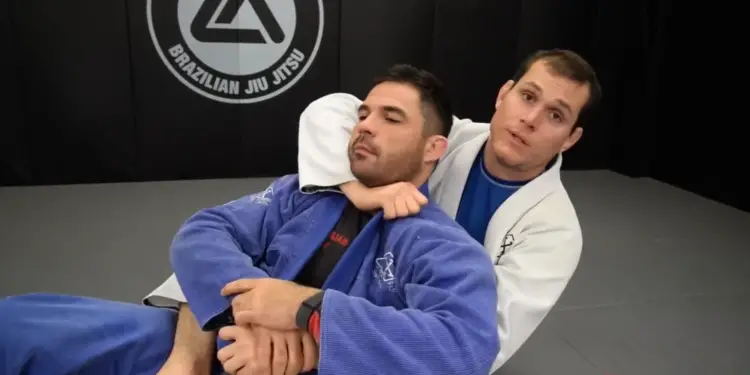A recent scientific study was conducted on grapplers in order to assess whether or not a repeated exposure to chokes in sports like BJJ had any effect on the risk of suffering a stroke. It’s something that has discussed quite a lot in the BJJ world, as it’s long been thought that either repeated choking or choking to the point of unconsciousness might increase the risk of the receiver suffering a stroke. It’s something of a boogeyman in the sport as it’s a reasonable concern for anyone involved, but it hasn’t been studied to any significant degree and most of the common knowledge on it is essentially guesswork.
Samuel Stellpflug and his fellow researches gathered 20 grapplers who had all reported experiencing over 500 chokes and had been training over 5 years, alongside 19 non-grapplers who were matched by age, sex, and body-size as controls. They then conducted a Carotid Intima-Media Thickness test (CIMT) on each person, along with testing their blood for 4 different biomarkers of brain injury. The goal of a CIMT is to measure the thickness of the Carotid arteries’ inner and middle layers, something that acts as a predictor of Carotid Artery Disease and can show an increased risk of suffering an Ischemic Stroke.
Despite many people in the BJJ world believing that repeated chokes or chokes held too long can increase the risk of stroke, that’s not what the study found at all. They found no significant differences in the CIMT measurements and no significant differences in the 4 brain injury biomarkers that were tested for. Although this one study doesn’t settle the debate once and for all, it does shine some light on the area and act as a first point to build off in future research. The researcher who led the study, Stellpflug, is an expert in the area and has studied BJJ chokes extensively in the past.













